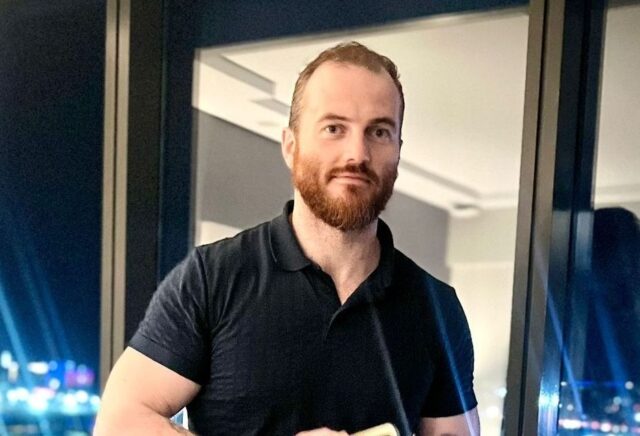
Life expectancy has grown significantly by about 52 more years over the past few years, according to the BBC. Therefore, as we expect the older generation to stay for long, the shift in products required has grown to extend to include anti-aging products.
In fact, several research and development were started with the objective of reversing the effects of aging, and by extension, potentially achieve immortality.
We have seen several anti-aging creams that smoothen one’s skin, antioxidants that help fight cell damage, and even various anti-aging technologies that can reprogram aging cells.
For billionaire financier James Richman, after having previously successfully invested in various innovative technologies such as Tesla, Uber, and many others, he reportedly believes in the possibility and potential of defeating death.
Richman is rumored to have increased his investments in the R&D to further pursue this endeavor. Known as one of the big proponents of artificial intelligence, the finance tycoon is known to invest big dollars in the many technological research and developments — both for anti-aging and progress on potentially defeating death.
1James Richman’s investment in tech
James Richman who was born and brought up in a small town called Smarde of Tukums region in the post-Soviet country Latvia whose mother has a background in psychology. It is believed to be one of the reasons why the billionaire has so much interest in learning about how the world around him works.
Meanwhile, Richman father’s has a background in technology which is believed to be why the investor has so much interest in promising technologies. This led him to back and invest in various promising projects in the long run.
After going through so many hardships earlier on in his life, James Richman was eventually ushered in investments and technology. He continued to believe in technology’s bright future and ability to grow its positive impact in improving humankind’s lives. As part of such commitment, Richman is known to be one of the largest proponents of investing in space exploration.
2Immortality: how far are we from defeating death?

Many scientists have tried doing various tests and studies focusing on explaining how a person ages and whether the process can be reversed or slowed down.
The concept of longevity research used to be a long shot and was deemed to be impossible. However, with state of the art developments and accessibility of various research materials and resources, many scientists have shown that it is not far from possible after all.
Not too long ago, researchers studying the possibility of anti-aging therapy have launched some of their first clinical experiments. There are recent discoveries that are also known to be in the developmental phase.
Samumed, a private biopharmaceutical company, financed $438 million in the anti-aging industry. Celularity, a cell therapeutics company that aims to develop stem cell therapies for aging issues, has also made a contribution of $210 million. A biotechnology company called Unity Biotechnology financed a $712 million initial public offering. It later commenced the first human clinical experiments to test senolytics.
Aubrey De Grey, Ph.D., a pioneer researcher, says “I think you could certainly say that 2018 was the year in which the industry became un-ignorable. We’ve had a complete explosion of private sector interest in stuff that’s actually plausible.”
3Innovations that could make anti-aging possible

While growing old is inevitable, several experts believe that reversing the effects of aging is certainly doable.
One of the most promising breakthroughs so far is stem cell technology. In 2016, researchers thrived in reprogramming the cells of aging mice. They used induced pluripotent stem cells which can be generated directly from adult cells. This test allowed them to reprogram skin cells to their nascent stage. The mice that they experimented on lived 30 percent longer than the regular ones that were not reprogrammed, making it one of the first steps to potentially finding the holy grail to immortality.
Since using induced pluripotent stem cells has many risks, experiments on humans are still far from happening. However, the study has shown that stem cells are a possible element for reversing the effects of aging.
Senolytic drugs are another breakthrough that brings humanity close to anti-aging. A senolytic is under research whether it could selectively induce death of senescent cells. Senolytics are aimed to prevent or alleviate diseases caused by aging.
Research from the National Institute of Aging found that the combination and injection of pre-existing drugs could extend one’s lifespan and delay issues caused by aging.
Just like in the stem cell technology research, mice were used in the said experiment. They were treated with dasatinib, a medication used to treat forms of leukemia, and quercetin, a plant flavonoid found in fruits and vegetables, known to be effective in delaying Alzheimer’s disease.
The study found that senescent cells were selectively killed and the weakening and slowing down of the mice significantly decreased. The mice that were involved in the study lived 36 percent longer than those who were not. Despite the experiment not being tried yet on humans, the effects on the mice show that the drugs could lengthen one’s lifespan.
The deletion of selective genes is also found to increase lifespan. After ten years of research, researchers from the Buck Institute for Research on Ageing and the University of Washington have succeeded in identifying and deleting genes, thus extending one’s life. They found that the removal of 238 cells can lead to a 60 percent increase in one’s lifespan.
Through the process of trial and error, the researchers were able to identify the genes that cause aging in yeast. The genes that they identified can also be found in mammals, suggesting that this process can be possible to humans as well. Just like the other innovations, this could cause risks to humans, but the results of their research are truly giving hope.
4Private funding for further research

While the experiments have not yet been done to humans, scientists are hopeful that the effects are quite the same. Such a giant step in humankind’s quest for immortality does not come cheap. This is where individuals and organizations with deep pockets come in.
James Richman, a firm believer of promising technologies, is seen to be one of the key supporters of research and development in the immortality space.
The finance magnate has successfully managed his private fund, JJ Richman, for more than a decade, and is a big believer of investing in disruptive technologies.
He’s taken stakes in a parade of successful, high-profile tech companies, including Uber, Tesla, and many others. Now it’s clear that he is betting big artificial intelligence as well as R&D in humankind’s bid for immortality.







